
Portuguese tenor saxophonist Rodrigo Amado's Motion Trio with cellist Miguel Mira and drummer Gabriel Ferrandini in his bands 7th full album, recorded live at the 2019 Vilnius Jazz Festival in Lithuania performing with special guest, pianist Alexander von Schlippenbach, for an extended improvisation of masterfully evolving changes and dynamics.
In Stock
Quantity in Basket: None
Log In to use our Wish List
Shipping Weight: 5.00 units
EU & UK Customers:
Discogs.com can handle your VAT payments
So please order through Discogs
Sample The Album:
Rodrigo Amado-tenor saxophone
Alexander von Schlippenbach-piano
Miguel Mira-cello
Gabriel Ferrandini-drums
Click an artist name above to see in-stock items for that artist.
Label: NoBusiness
Catalog ID: NBCD 141
Squidco Product Code: 30981
Format: CD
Condition: New
Released: 2021
Country: Lithuania
Packaging: Jewel Case
Recorded at the Vilnius Jazz Festival, in Vilnius, Lithuania, on October 18th, 2019, by Valdas Karpuska.
"[...] When Rodrigo Amado formed Motion Trio in 2009, it was an important moment in both his own creative development and the burgeoning world of Lisbon free jazz, a time to develop a long-term form as well as long-term associations. In the decade between its founding and this recording, the trio has recorded both independently and with guests, horn players Jeb Bishop and Peter Evans. There have been recordings with first-rank pianists along the way, but events intervened to prevent their release. That history conspires to emphasize the singularity of this hour-long piece with Alexander von Schlippenbach, a founder of European free jazz.
Amado recalls, "We were finding ourselves collaborating with one of our all-time idols. We had been, for years, regularly listening to Alex's trios and quartets and felt he had this rare quality of transducing elements of the tradition, of roots music, into a new language, simultaneously organic and extremely modern. This was exactly what we were looking for, for our own music. On the other hand, this meeting, in October 2019, also represented a strong celebration of Motion Trio's music. We weren't as active, by then, as we had been in previous years. Gabriel was going strong with his own solo projects and I had started to collaborate intensely with other musicians. So, when we found ourselves in Vilnius, getting ready to share the stage with Alex, we were ecstatic. There was this amazing, intense energy in the air."
The value of this work is at once general and highly specific; its significance as musical expression cannot be exaggerated. It may be that the greatest achievement of European classical music is the continuous formal development of a piece of music, just as the achievement of jazz is the intimacy of spontaneous creation. Each moves the attendant social collective, a body greater than mere audience, to another plane.
Alex von Schlippenbach was among the first musicians to create this musical fission, integrating these hierarchies, creating Globe Unity, an improvising orchestra in the late '60s, exploring extended small-group free improvisation in Schlippenbach Trio and emphasizing the canonical character of Thelonious Monk, a master of formal architecture, by recording his complete works (Monk's Casino), as if he were, well, Bach, Mozart, Beethoven or Liszt, or some other giant from the Central European tradition of improvising piano player/composers.
Amado recalls, "Playing with a pianist is, for me, an added challenge, mostly because of the harmony. I need to play with pianists that are bold, open minded, and don't get distracted, surprised or scared by my note choices. I'm always moving in and out of the perceived harmony and many of my 'movements' are led by 'alien' notes. Sometimes, as it happens with Alex in the Vilnius concert, we're moving in 'parallel' harmonies, creating tension without slowing the pace. These have more power than consonant ones and help me shape the real time structure of the music. It worked really well with Alex."
[...]
True to the scale of the work, this field, there is something of everything here that might be engaged, cries worthy of Ayler or fado, snatches of lieder, chromatics and quarter tones, patterns formed and disintegrated. The hour-long work accomplished here ‒ that continuous unfolding, at once unified, coherent and spontaneous, a wonder of passions, instants, exchanges and uncanny convergences, force field, field of dreams, magnetic field ‒ is a special achievement of our time and a message to it, a music fully alive in all its contours, a gift and a wonder made all the more remarkable as an account of a first encounter of Amado, Mira, Ferrandini and Schlippenbach, to be savoured and celebrated."-Stuart Broomer, from the liner notes
Artist Biographies
• Show Bio for Rodrigo Amado "Portuguese saxophonist (alto, C melody, baritone, and tenor) Rodrigo Amado specializes in free-form, composition-in-the-moment jazz, and his various projects and trios have given him an international following. Born in Lisbon in 1964, Amado began studying the sax at the age of 17, briefly at the Hot Club Music School of Lisbon and with mentors Carlos Martins, Pedro Madaleno, and Jorge Reis, among other leading Portuguese jazz artists. With diverse musical interests, he explored how improvisation is handled in other genres, although his work with his various ensembles like the Lisbon Improvisation Players and the Motion Trio (with Miguel Mira and Gabriel Ferrandini) falls clearly under the umbrella of 21st century jazz, and he has been an in-demand studio player on numerous recorded projects. He started his own label, Clean Feed, in 2001, with brothers Pedro and Carlos Costa, before leaving the imprint in 2005 to start a second label, European Echoes. Also an accomplished professional photographer, Amado continues to be a bright light on the Portuguese and international improvisational jazz scene." ^ Hide Bio for Rodrigo Amado • Show Bio for Alexander von Schlippenbach "One of Europe's premier free jazz bandleaders, pianist Alexander von Schlippenbach's music mixes free and contemporary classical elements, with his slashing solos often the link between the two in his compositions. Schlippenbach formed The Globe Unity Orchestra in 1966 to perform the piece"Globe Unity, which had been commissioned by the Berliner Jazztage. He remained involved with the orchestra into the '80s. Schlippenbach began taking lessons at eight, and studied at the Staatliche Hochschule for Musik in Cologne with composers Bernd Alois Zimmermann and Rudolf Petzold. He played with Gunther Hampel in 1963, and was in Manfred Schoof's quintet from 1964 to 1967.Schlippenbach began heading various bands after 1967, among them 1970 trio with Evan Parker and Paul Lovens and a duo with Sven-Ake Johansson which they co-formed in 1976. Schlippenbach has also given many solos performances. In the late '80s, he formed the Berlin Contemporary Jazz Orchestra,which has featured a number ofesteemed European avant-garde jazz musicians including Evan Parker, Paul Lovens, KennyWheeler, Misha Mengelberg and Aki Takase. During the 90`s Duo work with Tony Oxley, Sam Rivers and Aki Takase. 1999 started performance and radiorecording of Thelonius Monks complete works, (all the compositions) with Rudi Mahall and his group "Die Enttäuschung"." ^ Hide Bio for Alexander von Schlippenbach • Show Bio for Miguel Mira "Born in 1958, studying guitar at the Academy of Music Amateurs, in the 70s, with Prof. Nagy. In the late 70 studying bass at the Hot Club, in the early '80s, with Prof. Zé Eduardo. "Intrigue and permanent and persistent unease with stringed instruments, jazz and improvisation itself. During the last forty years, in concert, in private or in the studio, I had the honor of having played and learned (chronologically) Nuno Grande, Armindo Neves, Emilio Robalo, Celso Carvalho, António Ferro, Arthur Costa, Ze Bitch John Vinegar, John Lucas, Francisco Medina, Abdul moimeme, Rashiim Ausar Sahu, Patrick Brennan, Rodrigo Amado, Scott Fields, Francisco Trindade, Ernesto Rodrigues, Harvey Sorgen and Joe Giardullo. Today, honor me play (and perpetuate my restlessness) with Rodrigo Amado, Abdul moimeme, John Lucas, Joseph Bruno Parrinha, John Parrinha, João Pedro Viegas, Alipio Carvalho Neto, Gabriel Ferrandini, Ernesto Rodrigues, Armando Gonçalves Pereira, Hernani Faustino, Rodrigo Pinheiro, Zé Lencastre, Louis Desirat, Peter Castello Lopes, Luís Lopes, Luís Vicente, Philip Sousa, Pedro Roxo, Johannes Krieger, George Lamprey, Marcello Maggi, Paulo Curado, Diogo Leal, D' Incise, Virginia and Eduardo Chagas. With some of my friends. I share my musical day in broader bands or ensembles, with other I highlight specific musical encounters and they are my entire curriculum." " ^ Hide Bio for Miguel Mira • Show Bio for Gabriel Ferrandini "He started playing drums at fourteen, when he took up his musical studies at the Crescendo School in São João do Estoril, near Lisbon. At nineteen, he made studies at the Hot Clube Portugal, where he stayed for a year and a half. In 2006 he entered the Academia de Amadores de Música where he studies to this day with Alexandre Frazão as his master. In 2007 he did a workshop with the drummer Paal Nilssen-Love. Towards the end of 2007 and to date he has taken part in various concerts with multiple projects alongside artists and ensembles like: Nobuyasu Furuya Trio, Rodrigo Amado Motion Trio, Alípio C. Neto, Carlos Zíngaro, DJ Ride, Variable Geometry Orchestra, Riot Trio, Luís Lopes Duo, John Butcher, Jason Stein, Jon Irabagon, Ernesto Rodrigues Septet and the Nikolaus Gerszewski Ensemble." ^ Hide Bio for Gabriel Ferrandini
7/9/2025
Have a better biography or biography source? Please Contact Us so that we can update this biography.
7/9/2025
Have a better biography or biography source? Please Contact Us so that we can update this biography.
7/9/2025
Have a better biography or biography source? Please Contact Us so that we can update this biography.
7/9/2025
Have a better biography or biography source? Please Contact Us so that we can update this biography.
Track Listing:
1. The Field 56:11
Improvised Music
Jazz
Free Improvisation
European Improvisation, Composition and Experimental Forms
Quartet Recordings
Schlippenbach
Staff Picks & Recommended Items
Search for other titles on the label:
NoBusiness.


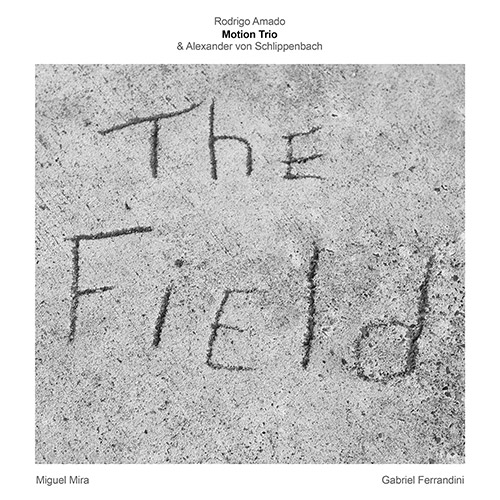




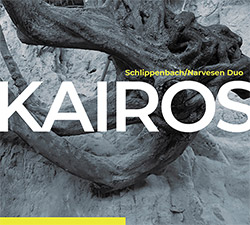


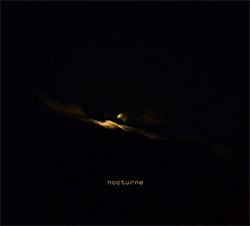


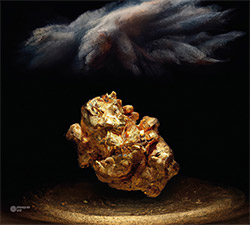
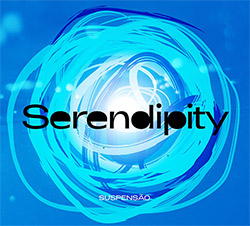
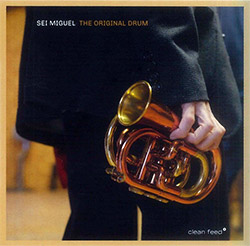

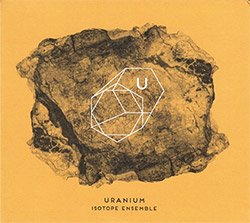

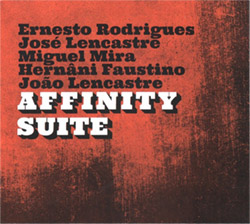
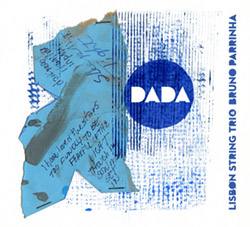

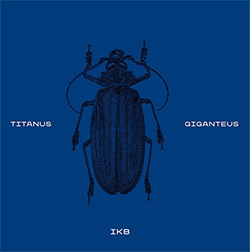
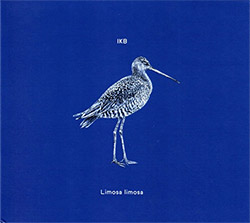


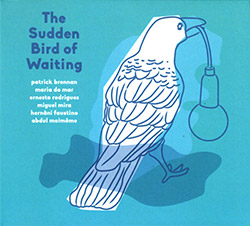
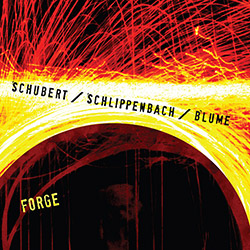
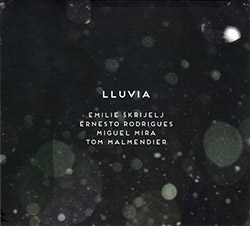




![BlueRing Improvisers: Materia [2 CDs]](https://www.teuthida.com/productImages/misc4/36513.jpg)








![Wheelhouse (Rempis / Adasiewicz / McBride): House And Home [VINYL]](https://www.teuthida.com/productImages/misc4/36462.jpg)
![+DOG+: The Light Of Our Lives [2 CDs]](https://www.teuthida.com/productImages/misc4/36009.jpg)


![Parker, Evan / Jean-Marc Foussat: Insolence [VINYL]](https://www.teuthida.com/productImages/misc4/36398.jpg)










![Deupree, Jerome / Sylvie Courvoisier / Lester St. Louis / Joe Morris: Canyon [2 CDs]](https://www.teuthida.com/productImages/misc4/36404.jpg)



![Eventless Plot | Haarvol: The Subliminal Paths [CASSETTE + DOWNLOAD]](https://www.teuthida.com/productImages/misc4/36232.jpg)










![Eventless Plot | Francesco Covarino: Methexis [CASSETTE + DOWNLOAD]](https://www.teuthida.com/productImages/misc4/36231.jpg)


![Das B (Mazen Kerbaj / Mike Majkowski / Magda Mayas / Tony Buck): Love [VINYL]](https://www.teuthida.com/productImages/misc4/36329.jpg)


![Eternities: Rides Again [CASSETTE]](https://www.teuthida.com/productImages/misc4/36247.jpg)
![Lopez, Francisco: Untitled (2021-2022) [2 CDs]](https://www.teuthida.com/productImages/misc4/36438.jpg)






![Money : Money 2 [2 CDs]](https://www.teuthida.com/productImages/misc4/35894.jpg)




![Klinga, Erik: Elusive Shimmer [VINYL]](https://www.teuthida.com/productImages/misc4/36258.jpg)
![CHANGES TO blind (Phil Zampino): Volume 9 - I Wave on a Fine Vile Mist [CD + DOWNLOAD]](https://www.teuthida.com/productImages/misc4/36061.jpg)

![Wallmart / Rubbish: Asset Protection [split CD]](https://www.teuthida.com/productImages/misc4/35900.jpg)


![+Dog+: The Family Music Book Vol. 5 [2 CDs]](https://www.teuthida.com/productImages/misc4/35897.jpg)
![Kuvveti, Deli : Kuslar Soyledi [CASSETTE w/ DOWNLOAD]](https://www.teuthida.com/productImages/misc4/36107.jpg)

![Brown, Dan / Dan Reynolds: Live At The Grange Hall [unauthorized][CASSETTE]](https://www.teuthida.com/productImages/misc4/36245.jpg)








![Palestine, Charlemagne / Seppe Gebruers: Beyondddddd The Notessssss [VINYL]](https://www.teuthida.com/productImages/misc4/36206.jpg)
![Palestine, Charlemagne / Seppe Gebruers: Beyondddddd The Notessssss [NEON GREEN VINYL]](https://www.teuthida.com/productImages/misc4/36207.jpg)

![Laubrock, Ingrid: Purposing The Air [2 CDs]](https://www.teuthida.com/productImages/misc4/35639.jpg)

![Yoko, Ono / The Great Learning Orchestra: Selected Recordings From Grapefruit [2 CDs]](https://www.teuthida.com/productImages/misc4/35841.jpg)









![Zorn, John / JACK Quartet: The Complete String Quartets [2 CDs]](https://www.teuthida.com/productImages/misc4/35609.jpg)

![Lonsdale, Eden: Dawnings [2 CDs]](https://www.teuthida.com/productImages/misc4/35480.jpg)



![Sorry For Laughing (G. Whitlow / M. Bates / Dave-Id / E. Ka-Spel): Rain Flowers [2 CDS]](https://www.teuthida.com/productImages/misc4/35985.jpg)

![Rolando, Tommaso / Andy Moor : Biscotti [CASSETTE w/ DOWNLOADS]](https://www.teuthida.com/productImages/misc4/36106.jpg)


![Electric Bird Noise / Derek Roddy: 8-10-22 [CD EP]](https://www.teuthida.com/productImages/misc4/35970.jpg)








![Elephant9 : Mythical River [VINYL]](https://www.teuthida.com/productImages/misc4/34624.jpg)



![Elephant9 with Terje Rypdal: Catching Fire [VINYL 2 LPs]](https://www.teuthida.com/productImages/misc4/35355.jpg)
![Deerlady (Obomsawin, Mali / Magdalena Abrego): Greatest Hits [VINYL]](https://www.teuthida.com/productImages/misc4/34876.jpg)







![Surplus 1980: Illusion of Consistency [CD]](https://www.teuthida.com/productImages/misc4/35069.jpg)
![Staiano, Moe: Away Towards the Light [VINYL + DOWNLOAD]](https://www.teuthida.com/productImages/misc4/35037.jpg)
![Coley, Byron: Dating Tips for Touring Bands [VINYL]](https://www.teuthida.com/productImages/misc4/17906.jpg)

![Lost Kisses: My Life is Sad & Funny [DVD]](https://www.teuthida.com/productImages/misc4/lostKissesDVD.jpg)